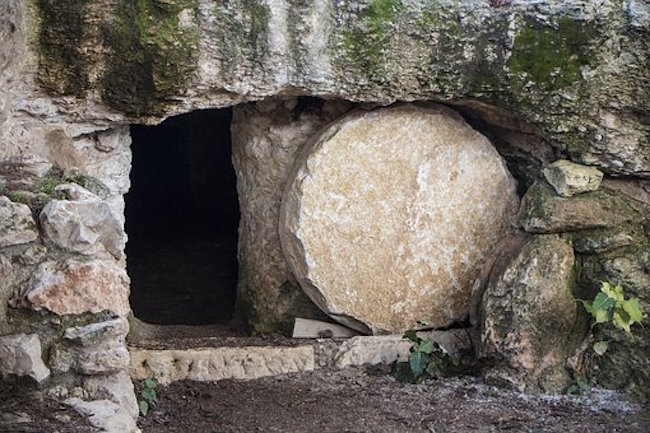Why is the empty tomb so important? from Compelling Truth
Christians believe Jesus rose on the third day from the tomb in which He was buried and is alive. Why is the empty tomb so important?
First, the fact that the body of Jesus was missing is evidence that supports the apostolic teaching that Jesus is alive. Opponents could have easily ended the early accounts of the resurrected Jesus by simply finding His body. Even when Peter preached at Pentecost in Jerusalem 50 days after the death of Jesus, no one challenged his claim that the tomb was empty. The question was what had happened to the body. Matthew 28:11-15 notes the alternative account given by opponents was that the body had been stolen by His disciples. Yet 11 men lacking military training would not have been able to defeat the Roman guards at the tomb.
Second, the location of the tomb was well known to both the disciples and the enemies of Jesus. Joseph of Arimathea was a member of the Jewish Sanhedrin and well respected in the community. Those who wished to verify the story of the empty tomb could easily visit the location.
Third, all four Gospel accounts note the empty tomb was first discovered by women. This is significant in two ways. One way it is significant is that it highlights the fear of the male disciples. Rather than visiting the tomb, they were gathered together in a locked home. In addition, in ancient times the testimony of a woman counted less than that of a man. If the story of the empty tomb had been fabricated, men would have certainly been the first ones noted as discovering it.
Fourth, the tradition of the empty tomb is early in both biblical and extra-biblical literature. Paul wrote 1 Corinthians in the 50s, only about twenty years after the resurrection took place. Yet he claimed that 500 people had seen Jesus alive and that most were still living (1 Corinthians 15). Further, he had received the information from Peter, James, and John after his conversion, within three to five years of the resurrection. In extra-biblical literature, Jesus was mentioned by Jewish historian Josephus in the first century as one whose followers believed He was still alive. Several writers in the second century spoke of the resurrection as a key Christian belief.




